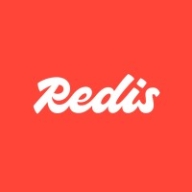

Cassandra and Redis serve different roles in data management, with Cassandra being more suitable for distributed and large-scale databases, while Redis is designed for quick in-memory data processing. Redis has an edge in speed and simplicity, making it ideal for applications requiring rapid data handling and real-time analytics.
Features: Cassandra supports high availability, horizontal scalability, and handles large data volumes across nodes efficiently. Redis offers a simple interface, fast data retrieval due to in-memory storage, and versatile data structures useful for caching and quick data access.
Room for Improvement: Cassandra could benefit from reduced complexity in managing its distributed architecture and improving setup simplicity for users. Redis might improve by enhancing storage capabilities, adding more built-in functionalities, and managing multi-node reliability seamlessly.
Ease of Deployment and Customer Service: Cassandra's deployment can be complex due to its architecture, requiring careful management of nodes and resources. Redis simplifies the deployment process with its straightforward setup and configuration. Redis is known for responsive customer service, making technical issues easier to navigate.
Pricing and ROI: Cassandra often incurs higher initial costs due to infrastructure needs but offers significant ROI for large-scale data systems. Redis provides a cost-effective option, particularly for applications where speed is prioritized, often leading to a faster ROI with lower setup expenses.
| Product | Market Share (%) |
|---|---|
| Redis | 8.7% |
| Cassandra | 8.0% |
| Other | 83.3% |

| Company Size | Count |
|---|---|
| Small Business | 8 |
| Midsize Enterprise | 1 |
| Large Enterprise | 14 |
| Company Size | Count |
|---|---|
| Small Business | 11 |
| Midsize Enterprise | 3 |
| Large Enterprise | 8 |
Cassandra is a distributed and scalable database management system used for real-time data processing.
It is highly valued for its ability to handle large amounts of data, scalability, high availability, fault tolerance, and flexible data model.
It is commonly used in finance, e-commerce, and social media industries.
Redis offers high-speed, in-memory storage, renowned for real-time performance. It supports quick data retrieval and is used commonly in applications like analytics and gaming.
Renowned for real-time performance, Redis delivers high-speed in-memory storage, making it a favorite for applications needing quick data retrieval. Its diverse data structures and caching capabilities support a broad array of use cases, including analytics and gaming. Redis ensures robust scalability with master-slave replication and clustering, while its publish/subscribe pattern renders it reliable for event-driven applications. The solution integrates smoothly with existing systems, minimizing performance tuning needs. Although documentation on scalability and security could be improved, Redis remains cost-effective and stable, commonly utilized in cloud environments. Enhancing integration with cloud services like AWS and Google Cloud and refining GUI may improve usability.
What are the key features of Redis?Redis finds application across industries for tasks like caching to improve application performance and speed, minimizing database load. It enables real-time processing for session storage, push notifications, and analytics. As a messaging platform, Redis handles high traffic and supports replication and clustering for cross-platform scalability.
We monitor all NoSQL Databases reviews to prevent fraudulent reviews and keep review quality high. We do not post reviews by company employees or direct competitors. We validate each review for authenticity via cross-reference with LinkedIn, and personal follow-up with the reviewer when necessary.